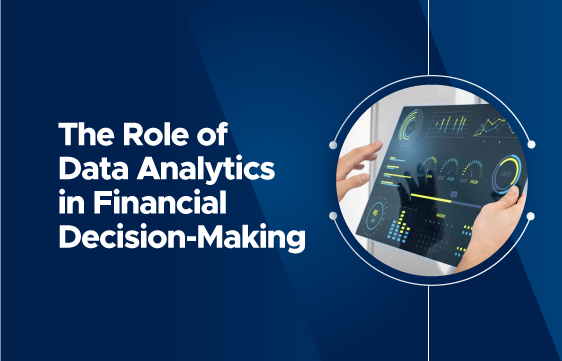- By SKIMT MBA
- November 2, 2023
- No Comments
Data Analytics in Financial Decision-Making
How data analytics influenced the finance industry?
Financial data analytics assists in making data-driven decisions and discovering new markets, designing products and services, operations efficiently and managing the regulations in the finance industry.
In the banking sector, data analytics requires analyzing the customer credit risk rate, detecting fraud and assisting management. These operations help them to safeguard their business and are able to assess the operational and liquidity risks.
- Data analytics in the banking sector helps them to look after the sales and revenue performance analysis that allows them to make informed decisions to drive growth.
- Customer analytics is the second reason why the banking sector can create a personalized service using digital marketing solutions. This personalisation drives new customers and retains the existing customers.
- Chatbots, virtual assistance, recommendation services and customer lifetime value are some of the personalized services which result in long-term gains for the banks.
- Another significant advantage of adopting data analytics for banks is quicker responses to inquiries about compliance with regulations.
- With predictive analytics, they can develop better services and products that consumers search for and interact with them to make better customer care solutions.
- Data analytics in the insurance sector helps them in analyzing the risk profiles which leads to making informed decisions and offering products with better pricing. For instance, for a customer with a history of bad driving, the data analysis recommends a higher premium. Eliminating fraud is another benefit of data analytics in insurance sectors.
The significant of data analytics in the finance industry:
- What are the anticipated profits?
- What risks exist?
- What would be the chance of this?
- In comparison to other options, how significant is this transaction?
Financial firms employ risk models to assess how risky situations are, what’s likely to happen, and how much risk mitigation will cost.
Enhanced customer experience: As already said, personalisation offers a better customer experience and financial institutions also benefit from acquiring knowledge about the client’s habits on investments and decisions. The introduction of chatbots and virtual assistance helps clients in many ways,
- Helps in knowledge management and client service.
- Take the place of manual procedures like calling or emailing clients.
- Boost client engagement through tailored communications.
Increased operational efficiency: In financial institutions, there are also operational risks that include fraud, theft, computer security breaches, or executive-level mistakes in judgment or incompetence. Thus the finance industry takes early action with the use of data analytics techniques to identify circumstances where there is a greater chance of loan repayment or other potential risks.
Better decision-making: The need for efficient decision-making tools has increased due to the sophistication of banking services and products, which will allow for better decisions to be made using data insights. Analyzing the data helps in better decision-making in the areas like,
- increase your revenues
- strengthen commercial ties
- enhance customer service
- better understand your company
- how it operates by reviewing your documentation and transactional data.



